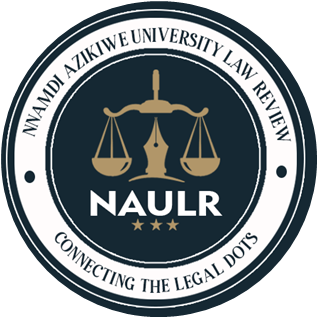BY
OSAZEE DAVID EGBENUSI AND DORIS AIHANUWA OGBEIDE
Abstract
This paper reviews the provision of the 1999 Constitution of the Federal Republic of Nigeria (CFRN, 1999) on religion vis-à-vis the religious practices in Nigeria. Historically, Nigeria has witnessed and experienced religious tension often associated with the two major religious groups; Christians and Muslims. This has resulted in the destruction of several lives and property. Certainly, these huge losses have deprived the nation of the needed manpower and services for the growth of its wobbling economy. This conflict can be blamed on the agitation by these religious groups, to gain dominance in the country despite the provision of section 10 CFRN 1999 which clearly states that “The Government of the Federation or of a State shall not adopt any religion as State Religion”. This is in consequence of the fact that the Nigerian state being a pluralistic one, with diverse religious beliefs, cannot logically or practically adopt any religions as state religion. The finding is that the constitutional provisions on this subject are generally sufficient to forestall religious extremism if strictly adhered to. The radical departure from the constitutional provision when brought to the light of actual practice stems from a lack of dedication to the written words of the Constitution which is a problem plaguing the actualization of the letters of the constitution on freedom of religion and its limitation. The general repudiation of the supremacy of the constitution by Islamic law evidenced in twelve states in northern Nigeria declaring Sharia to be the ultimate source of their laws plays an active role in this regard.
